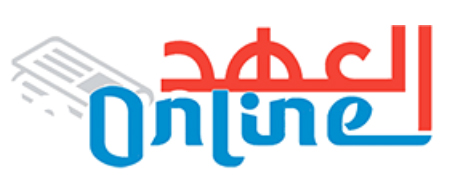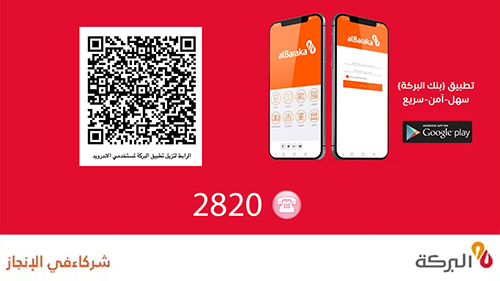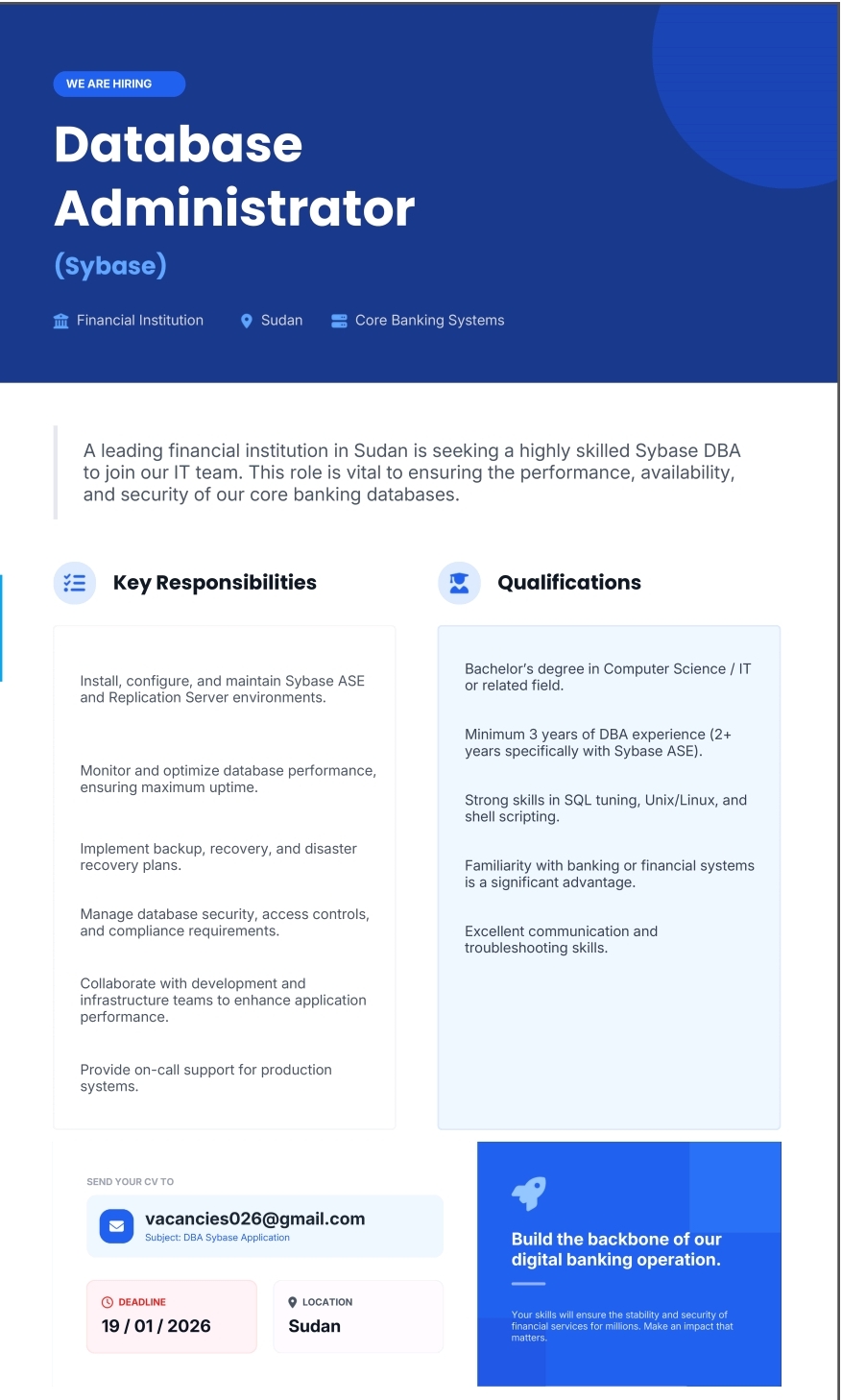د. محمد يوسف قباني يكتب: الإنسان بين التسيير والتخيير في بناء ذاته: مقاربة في سياق السودان ما بعد الحرب .. Man between Predestination and Choice in Building the Self: An Approach in the Context of Post-war Sudan.. Dr. Mohamed Elgabbani..

د. محمد يوسف قباني يكتب: الإنسان بين التسيير والتخيير في بناء ذاته: مقاربة في سياق السودان ما بعد الحرب ..
Man between Predestination and Choice in Building the Self: An Approach in the Context of Post-war Sudan..
Dr. Mohamed Elgabbani..
حينما يواجه الإنسان السوداني واقعه، يجد ذاته أمام سؤال جوهري يرافقه في كل مراحل حياته: هل أنا مسيَّر بخطوط مرسومة لا أملك حيالها تغييراً، أم أنني مخيَّر أستطيع أن أعبّد لنفسي مساراً جديداً مهما كانت الصعوبات والتحديات؟ هذا السؤال لا يظلّ في دائرة الفلسفة والجدل والمنطق فحسب، بل يتجسّد عملياً في مسار تطوير الذات، أي في كيفية نهوض الإنسان بذاته رغم القيود والظروف المحيطة القاسية.
وفي مجتمعات أنهكتها الحروب والنزاعات والانقسامات، مثل السودان، تصبح هذه الإشكالية أكثر إلحاحاً: فهل الإنسان السوداني هناك ضحية قدر لا يملك حياله شيئاً، أم أنه يستطيع أن ينهض من بين الركام ليعيد بناء ذاته، ومن ثمّ يشارك في إعادة بناء مجتمعه ووطنه؟
بين التسيير والتخيير هناك جدلية لا تنتهي، التسيير يعني أن يظل الإنسان أسيراً للظروف، صامتاً أمام الخطأ، عاجزاً عن اتخاذ القرار، متكئاً على مبررات القدر أو ضغوط المجتمع داخلياً أو خارجياً. أما التخيير، فيمثل لحظة الوعي، حيث يعي الإنسان أن لديه صوتاً يمكن أن يغيّر، ورؤية يمكن أن تصنع الفرق، حتى وإن كلّفه ذلك الكثير.
وفي السودان، يختبر الإنسان هذه الجدلية يومياً: فهو مسيَّر حين يولد في بيئة فقيرة، أو يجد نفسه وسط نزوح وتشريد، أو محاطاً بظروف حرب لم يكن طرفاً في إشعالها. ولكنه في الوقت نفسه مخيَّر حين يقرر أن يتعلم رغم انقطاع المدارس وتوقف الجامعات، وأن يؤسس لرأس مال اجتماعي بالرغم من القلة، أو يبني شبكة علاقات رغم التشظي الاجتماعي، وأن يواجه الظلم بالكلمة الحكيمة أو بالموقف – موقف اللاعنف، حتى إن عرّضه ذلك للمخاطر.
في بلدٍ أنهكته الحرب – سوداننا الغالي، وتكاد فيه الحياة أن تتوقف عند حدود الألم، يصبح الكلان عن تطوير الذات أشبه بمحاولة إشعال شمعة في عاصفة. لكنّ الإنسان، بطبيعته، لا يتوقف عن البحث عن نوافذ الضوء، حتى لو كان محاطاً بالظلام من كل الجهات. في السودان، حيث الحرب مزّقت المدن، وشرّدت الأسر، وعلّقت الأحلام في الهواء، يظل تطوير الذات فعلاً مقاوماً، لا يُمارس من باب خيار ثانوي، بل من باب النجاة. فتطوير الذات في هذا السياق لا يعني حضور دورات تدريبية أو قراءة كتب تنمية بشرية فاخرة، بل يبدأ من لحظة إدراك الإنسان لذاته وسط الفوضى. أن يعرف من هو، وما الذي
يشعر به، وما الذي فقده، وما الذي بقي له. إنها لحظة مواجهة مع الذات الإنسانية بكل مكوناتها الأربعة، لا هروب منها. حين يفقد الإنسان بيته، عمله، وربما أحبّاءه، لا يبقى له سوى ذاته، وهي إن لم تُصن وتُنمَّ، ستتآكل تحت وطأة الألم. في مجتمع منكوب بالحرب، يصبح التعلم الذاتي والتوجه الذاتي ضرورة. لا مدارس، لا جامعات، لا مؤسسات مستقرة. لكن المعرفة لا تُحبس خلف الجدران. يمكن للإنسان أن يتعلم من التجربة، من الحوار، من التأمل، من القصص التي تُروى في المجالس، ومن المحتوى الرقمي الذي يتسلل عبر الهواتف المحمولة. كل لحظة يمكن أن تكون درساً، وكل تجربة يمكن أن تُعيد تشكيل الوعي.
والرعاية النفسية، وإن كانت محدودة، تظل حجر الأساس في تطوير الذات. لا يمكن للإنسان أن يبني ذاته فوق جراح مفتوحة. الاعتراف بالألم، طلب الدعم، الحديث عن الخوف، كلها خطوات نحو التعافي. في السودان، ظهرت مبادرات مجتمعية بسيطة، يقودها شباب وشابات، تهدف إلى تقديم الدعم النفسي، ولو بالكلمة الطيبة، أو بالاستماع، أو بتنظيم جلسات حوارية في أماكن عديدة. وثمّة أيضاً قوة كامنة في العمل التطوعي. حين يمدّ الإنسان يده للآخرين، يشعر بأنه لا يزال قادراً على
العطاء، وأنه ليس ضحية كاملة. وحتي في الأحياء المنكوبة، تجد من ينظّم توزيع الطعام، أو من يعلّم الأطفال، أو من يواسي كبار السن. هذه الأفعال الصغيرة تُعيد للإنسان شعوره بالجدوى، وتمنحه طاقة للاستمرار. ولا يمكن تجاهل دور الإيمان والارتباط بسيدنا محمد عليه أجمل صلاة وأتم تسليم. في بلد ذي تراث ديني عميق، يلجأ الكثيرون إلى الله طلباً للسكينة. الصلاة، الذكر، الإكثار من الصلاة والسلام على سيدنا النبي صل
الله عليه وسلم، التأمل، الرضى، كلها أدوات تعزز السلام الداخلي، وتمنح الإنسان شعوراً بأن هناك معنى أكبر لما يحدث، وأنه ليس وحده في هذا الحال الحزين.
الإبداع أيضاً يزدهر في قلب المعاناة. في السودان، ظهرت أعمال فنية وأدبية تعبّر عن الألم، لكنها أيضاً تُعيد تشكيل الأمل. الرسم، الكتابة، الموسيقى، كلها كيفيات للتعبير، وللتنفيس، ولإعادة بناء الذات من الداخل. حين يكتب الإنسان عن وجعه، أو يرسم ما يشعر به، فإنه لا يهرب من الألم، بل يواجهه ويحوّله إلى شيء يمكن فهمه، وربما تجاوزه. ومؤكد أن الحرب تركت ندوباً عميقة في الإنسان والمجتمع معاً مثل:
1. انهيار المؤسسات التعليمية والتدريبية يجعل فرص تطوير المهارات أكثر صعوبة.
2. فقدان الأمن يزرع الخوف ويجعل كثيرين يشعرون بالعجز.
3. تفكك النسيج الاجتماعي يثقل كاهل الناس بالعزلة والخذلان.
لكن وسط هذه القتامة، يظهر جوهر التخيير: أن يقرر الشاب أو الفتاة ألا يستسلم. أن يبحث عن المعرفة عبر الوسائط الرقمية رغم ضعف الإنترنت وانقطاع الكهرباء لشهور. أن يبتكر مشروعاً صغيراً يطعم أسرته في ظل غياب الدولة. أن يقول كلمة الحق في وجه خطاب
الكراهية والانقسام. إن تطوير الذات في مثل هذه البيئات ليس خياراً ثانوياً، بل هو ضرورة وجودية، وفعل مقاومة، وكيفية للبقاء، وطريق نحو استعادة الكرامة الإنسانية.
كثيراً ما يواجه الإنسان السوداني خياراً صعباً: هل يصمت عن الخطأ طلباً للسلامة (التسيير)؟ أم يواجهه بالكلمة والموقف الذي يسهم في الجمع لا الفرقة ولا التمزيق ولا التفتيت، حتى لو كلّفه ذلك إقصاءً أو خطراً (التخيير)؟ هذا التوتر بين السلامة والصدق هو ما يحدد مسار تطوير الذات. فالمسيَّر يعيش في دائرة الخوف واللامبالاة، بينما المخيَّر، وإن دفع ثمناً، يرسّخ لذاته شخصية حية فاعلة
ومتفاعلة مع الجوهر الإنساني، ويفتح باب الأمل لغيره.
في النهاية، لا يكمن جوهر التخيير في تغيير كل الظروف الخارجية فوراً، بل فتح نوافذ الداخل وفك الأسر الداخلي. أن يدرك الإنسان أنه ليس مجرد ضحية، وأن لديه الحق في أن يحلم ويخطط ويجرّب. هذا الوعي هو أول خطوة في مسار تطوير الذات، وهو ما يحتاجه السودان بشدة أثناء الحرب وما بعدها – مواطنون يملكون شجاعة الاختيار، ويؤمنون بأن بناء الإنسان هو أساس بناء الوطن. فتطوير الذات في مجتمع منكوب بالحرب ليس مشروعاً فردياً فحسب، بل هو فعل جماعي. حين ينهض الإنسان، ينهض المجتمع. وحين يؤمن
الإنسان بأن ذاته تستحق أن تُنقذ، وأنه ليس مجرد رقم في قائمة الضحايا، فإنه يبدأ رحلة التعافي، ولو كانت طويلة وشاقة. في السودان، لا يزال هناك من يحلم، من يكتب، من يعلّم، من يواسي، من يبني. وكل هؤلاء، باساليبهم، يمارسون أرقى أشكال تطوير الذات: أن تظل إنساناً، رغم كل شيء.
وأختم وأقول: في سياق السودان، الذي يرزح تحت ثقل الحرب وما خلّفته من تشظيات، يظل سؤال “هل الإنسان مسيَّر أم مخيَّر؟” أكثر من مجرد جدل فكري؛ إنه قضية وجودية تحدد مصير الناس والمجتمع. فالتسيير قد يُشعر الناس بالعجز والاستسلام، لكنه لا يلغي مساحة التخيير التي وهبها الله لكل إنسان في قراراته اليومية. وتطوير الذات هنا واجب أخلاقي ومجتمعي، يختبر فيه
السودانيون قدرتهم على تجاوز دور الضحية إلى دور الفاعل. فكل قرار بالعلم، وكل خطوة نحو الوعي، وكل كلمة في مواجهة الخطأ، هي إعلان بأن الإنسان ليس مسيَّراً بالكامل، بل يملك حرية الاختيار ومسؤولية التغيير. وهكذا، في زمن الحرب وما بعدها، يصبح التخيير في تطوير الذات هو الأمل نحو بعث الحياة في وطن يحلم أهله بالسلام والعدل والكرامة الإنسانية.
When a Sudanese pepole faces their reality, they find themselves faced with a fundamental question that accompanies them throughout every stage of their life: Am I governed by predetermined lines that I cannot change, or do I have a choice that allows me to pave a new path for myself, regardless of the difficulties and
challenges? This question does not remain within the realm of philosophy, debate, and logic alone; it is embodied practically in the process of self-development—that is, in how a person rises on their own despite the constraints and harsh surrounding circumstances.
In communities exhausted by wars, conflicts, and divisions, such as Sudan, this dilemma becomes more pressing: Is the Sudanese person a victim of a fate over which they have no predestination, or can they rise from the ruins to rebuild
themselves and then participate in rebuilding their community and homeland?
Between predestination and choice, there is an endless dialectic. Predestination means that a person remains a prisoner of circumstances, silent in the face of error, unable to make decisions, and relying on the justifications of fate or societal pressures, both internal and external. As for choice, it
represents the moment of awareness, when a person realizes they have a voice that can change, and a vision that can make a difference, even if it costs them dearly.
In Sudan, people experience this dialectic daily: they are driven when they are born into a poor environment, or find themselves in the midst of displacement and homelessness, or surrounded by war conditions they had no part in starting. At the same time, however, they are given a choice when they decide to learn despite the closure of schools and universities, to
establish social capital despite scarcity, to build a network of relationships despite social fragmentation, and to confront injustice with wise words or a stance — a stance of nonviolence, even if it exposes them to danger.
In a country exhausted by war — our beloved Sudan — where life almost comes to a standstill at the edge of pain, the struggle to develop oneself becomes like trying to light a candle in a storm. But
humans, by nature, never cease searching for windows of light, even when surrounded by darkness on all sides. In Sudan, where war has torn cities apart, displaced families, and suspended dreams, self-development remains an act of resistance, practiced not as a secondary option, but as a means of survival. Self-development in this context doesn’t mean attending training courses or reading luxurious self-development books. It begins from the moment a person realizes themselves amidst the chaos. They learn
who they are, what they feel, what they have lost, and what they have left. It is a moment of confrontation with the human self in all its four components, from which there is no escape. When a person loses their home, their job, and perhaps their loved ones, all that remains is their self, and if it is not preserved and developed, it will erode under the weight of pain. In a community ravaged by war, self-learning and self-direction
become a necessity. There are no schools, no universities, no stable institutions. But knowledge is not locked behind walls. People can learn from experience, from dialogue, from contemplation, from stories told in gatherings, and from the digital content that infiltrates via mobile phones. Every moment can be a lesson, and every experience can reshape consciousness.
Psychological care, even if limited, remains the cornerstone of self-development. One cannot build oneself on top of open wounds. Acknowledging pain, seeking support, and talking about fear are all steps toward recovery. In Sudan, simple community initiatives have emerged, led by young men and women, aiming to provide psychological support, whether through kind words, listening, or organizing dialogue
sessions in various locations. There is also the latent power of volunteer work. When one extends a hand to others, one feels capable of giving, and that one is not a complete victim. Even in disaster-stricken neighborhoods, one finds someone organizing food distribution, teaching children, or comforting the elderly. These small acts restore a sense of purpose and give one the energy to continue. The role of
faith and bound to our Prophet Muhammad, peace and blessings be upon him, cannot be ignored. In a country with a deep religious heritage, many turn to God for peace. Prayer, remembrance of God, frequent prayers and peace upon our Master the Prophet Muhammad, may Allah bless him and grant him peace, meditation, and contentment are all tools that promote inner peace and give a person the feeling that there is a greater meaning to what is happening, and that he is not alone in this sad state.
Creativity also flourishes in the midst of suffering. In Sudan, artistic and literary works have emerged that express pain but also reshape hope. Painting, writing, and music are all ways of expressing, venting, and rebuilding oneself from within. When a person writes about their pain or draws what they feel, they do not escape the pain, but rather confront it and transform it into something that can be understood, and perhaps overcome. It is certain that war has left deep scars on both individuals and society, such as:
1. The collapse of educational and training institutions makes opportunities for skill development more difficult.
2. The loss of security sows fear and makes many feel powerless.
3. The disintegration of the social fabric burdens people with isolation and abandonment.
Yet amidst this gloom, the essence of
choice emerges for a young man or woman to decide not to give up. To seek knowledge through digital media despite weak internet access and months-long power outages. To create a small project that feeds their family in the absence of a state. To speak the truth in the face of hate speech and division. Self-development in such environments is not a secondary option; it is an existential necessity, an act of resistance, a means of survival, and a path toward restoring human dignity.
Sudanese people often face a difficult choice: should they remain silent about mistakes in pursuit of safety (management)? Or should they confront them with words and actions that contribute to unification, not division, fragmentation, or disintegration, even if it costs them exclusion or danger (choice)? This tension between safety and honesty determines the path of self-development. Those who are controlled live in a cycle of fear and
indifference, while those who choose, even if they pay a price, establish themselves as a living, active, and interactive personality that engages with the human essence and opens the door to hope for others.
Ultimately, the essence of choice lies not in immediately changing all external circumstances, but rather in opening the windows of the interior and breaking the internal captivity. It is for people to realize that they are not merely victims, and that they have the right to dream, plan, and
experiment. This awareness is the first step in the path of self-development, which Sudan desperately needs during and after the war—citizens who possess the courage to choose and who believe that building the human being is the foundation for building the nation. Self-development in a war-torn comuunity is not merely an individual project, but a collective act. When individuals rise, society rises. When
individuals believe that their self is worth saving, that they are not just a number on a list of victims, they begin the journey of recovery, however long and arduous. In Sudan, there are still those who dream, those who write, those who teach, those who console, and those who build. And all of these, in their own ways, practice the highest form of self-development: remaining human, despite everything.
I conclude by saying: In the context of
Sudan, which is groaning under the weight of war and the fragmentation it has left behind, the question “Is man controlled or free to choose?” remains more than just an intellectual debate; it is an existential issue that determines the fate of individuals and community. Being controlled may make people feel helpless and resigned, but it does not eliminate the space for choice that God has given every human being in their daily decisions. Here, self-development is a moral and societal duty, one in which Sudanese people test their ability to
transcend the role of victim to that of actor. Every informed decision, every step toward awareness, and every word in the face of error is a declaration that humans are not entirely controlled, but possess the freedom of choice and the responsibility for change. Thus, in times of war and beyond, the choice to develop themselves becomes the hope for reviving life in a homeland whose people dream of peace, justice, and human dignity.









